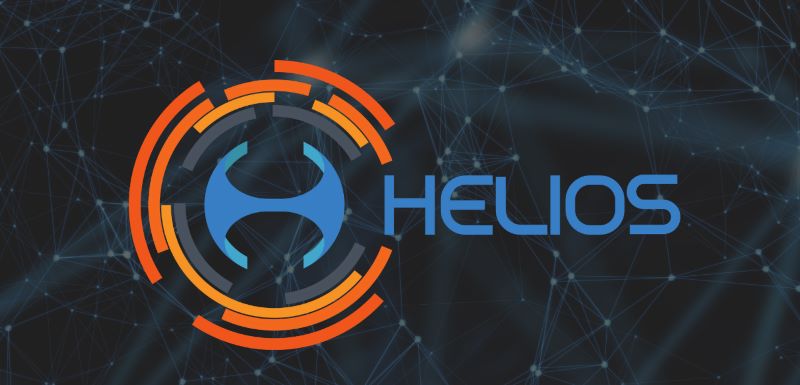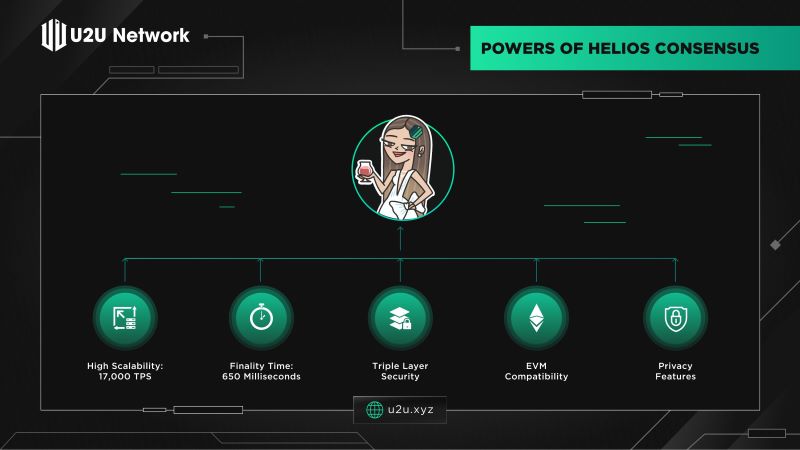Helios Consensus is emerging as a significant advancement in blockchain technology, promising to reshape the way distributed systems reach consensus and operate. Distinguished from traditional consensus mechanisms, It introduces substantial improvements in performance, security, and scalability.
Overview of Helios Consensus
Helios Consensus is a novel consensus mechanism in blockchain technology designed to enhance the performance, security, and scalability of blockchain networks.
Fundamental Principles of Helios Consensus
The fundamental principles of Helios Consensus include:
Decentralized Model
- Concept: It operates on a decentralized model, where no central entity controls the entire network. Instead, every node in the network participates in the validation and consensus process.
- Process: Nodes in the network interact with each other to validate and verify transactions. Consensus is reached when a sufficiently large number of nodes agree on the current state of the network.
Utilization of Novel Algorithms
- Cryptography: Helios Consensus employs advanced cryptographic algorithms to protect data integrity and ensure that transactions cannot be forged.
- Verification Mechanisms: It utilizes new verification algorithms to enhance the efficiency of the consensus process, reducing transaction confirmation time and energy consumption.
Performance Optimization
- Processing Speed: Helios Consensus is designed to improve transaction processing speed compared to traditional consensus mechanisms like Proof of Work (PoW) and Proof of Stake (PoS).
- Scalability: This mechanism supports better scalability, enabling blockchain networks to handle a higher volume of transactions without sacrificing performance.
Security and Reliability
- High Security: It applies advanced security measures to prevent network attacks and fraud. Transactions are encrypted and protected by robust algorithms.
- Ensuring Reliability: The mechanism ensures that all transactions and data are accurately validated and agreed upon, minimizing the risk of errors and failures.
Reduced Energy Consumption
- Energy Efficiency: Unlike PoW, Helios Consensus optimizes the consensus process to minimize energy consumption. This makes blockchain networks more efficient and environmentally friendly.
Balancing Rewards and Risks
- Reward Balancing: It provides a balanced approach between the rewards for nodes participating in the network and the associated risks. This helps maintain the fairness and stability of the system.
- Risk Management: The algorithms in Helios Consensus are designed to manage and mitigate risks associated with participating in the consensus process, enhancing network stability.
Outstanding Advantages of Helios Consensus
Helios Consensus, a novel consensus mechanism in blockchain technology, offers significant advantages over traditional consensus mechanisms.
High Performance
- Transaction Throughput: It significantly improves transaction processing speed compared to consensus mechanisms like Proof of Work (PoW) and Proof of Stake (PoS). This reduces transaction confirmation time and enhances overall network performance.
- Scalability: This mechanism supports better scalability, enabling blockchain networks to handle a large volume of concurrent transactions without compromising performance. This is particularly crucial for applications requiring high transaction throughput.
Enhanced Security
- Advanced Cryptography: Helios Consensus employs modern cryptographic algorithms to protect data and transactions, minimizing the risk of fraud and cyberattacks. This ensures the integrity and security of the system.
- Attack Detection: This mechanism can detect malicious activities and fraud earlier due to advanced verification and monitoring methods.
Energy Efficiency
- Reduced Energy Consumption: Unlike PoW, Helios Consensus optimizes the consensus process to reduce energy consumption. This lowers operational costs and makes the system more environmentally friendly.
- Higher Efficiency: This mechanism improves energy efficiency by minimizing complex calculations and optimizing the transaction verification process.
Balanced Rewards and Risks
- Balanced Rewards: It provides a balanced approach among network nodes, ensuring that rewards and responsibilities are fairly distributed. This maintains stability and fairness in the consensus process.
- Risk Management: This mechanism helps mitigate risks associated with participating in the consensus process, enhancing the reliability and stability of the network.
High Flexibility
- Customizability: Helios Consensus can be customized and adjusted to meet the specific requirements of different applications or blockchain networks. This increases the system’s flexibility and adaptability.
- Easy Integration: This mechanism can be easily integrated into existing and future blockchain systems, improving existing systems without requiring a complete overhaul of the infrastructure.
Practical Applications of Helios Consensus
Helios Consensus can be widely applied in various fields:
Finance and Banking
- Financial Transactions: Helios Consensus can improve the speed and efficiency of blockchain-based financial transactions, from payments and transfers to securities trading.
- Banking Systems: Banks can adopt It to build faster and more secure payment and transfer systems, while reducing operational costs and optimizing efficiency.
Supply Chain
- Supply Chain Management: It can be used to efficiently track and manage supply chains, ensuring the transparency and authenticity of products from manufacturers to consumers.
- Counterfeit Prevention: This mechanism helps verify the authenticity and origin of goods, preventing counterfeits from entering the supply chain.
Data Management and Security
- Data Security: Helios Consensus can be applied to secure data and manage sensitive information, from personal data to enterprise information.
- Cybersecurity Systems: Organizations can use this mechanism to enhance the security of cybersecurity systems, protecting data from attacks and fraud.
Smart Contracts
- Smart Contract Creation and Execution: It supports the efficient and secure creation and execution of smart contracts. Smart contracts can automatically execute terms and conditions without the need for third-party intervention.
- Process Optimization: This mechanism helps optimize automated processes and minimize errors in smart contract execution.
New Blockchain Projects
- Project Development: Helios Consensus can be applied in the development of new blockchain projects, from building platforms to deploying blockchain applications and services.
- Easy Integration: This mechanism can be integrated into existing and future blockchain systems, providing an efficient and flexible consensus solution.
Identity Management and Verification
- Identity Verification Systems: It can be used to build reliable identity verification systems, accurately verifying users and organizations.
- Access Control Management: This mechanism supports access control and authorization management in decentralized systems, ensuring that only authorized individuals or organizations can access sensitive resources.
Helios Consensus has the potential for wide-ranging applications in various fields, from finance and banking to supply chain management, data security, smart contracts, and new blockchain projects. With its advantages in performance, security, and energy efficiency, ABC believes that Helios Consensus will not only enhance the performance of blockchain systems but also open up new opportunities for the development of blockchain technology in the future.



